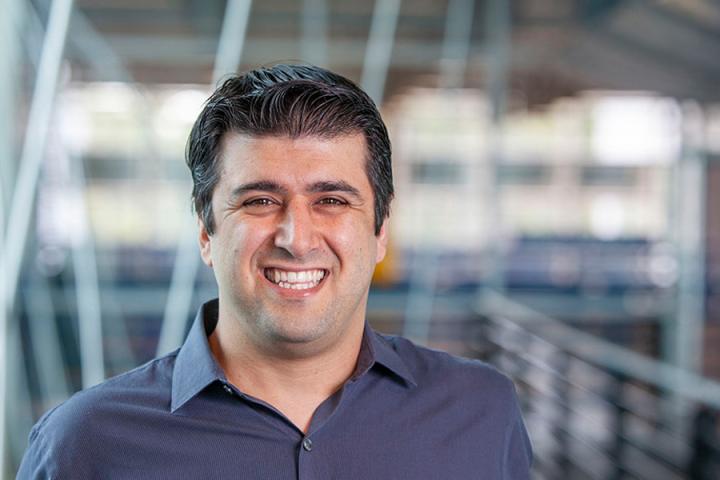
Credit: Mark Wallheiser/FAMU-FSU College of Engineering
Face masks are helpful in preventing the spread of COVID-19, but researchers believe they can be made even more effective, something that has implications far beyond the current pandemic as masks could become a more commonly used public health intervention.
Kourosh Shoele, an assistant professor in the Department of Mechanical Engineering at the FAMU-FSU College of Engineering, is part of a team that has received an $800,000 grant from the National Science Foundation to improve the efficacy of face masks as a defense against COVID-19 and other pathogens.
Shoele and his team hope to understand the flow physics and mechanics of face masks used to protect against the virus. They are also studying how face masks fit different users — and how they can be designed for the faces of a wider swath of the general population.
“The protection afforded by face masks has emerged as a particularly important issue in the COVID-19 pandemic, and the flow physics of these types of masks is extremely complex and not well-studied, especially when it comes to the facial topology of the user,” Shoele said.
The research findings are significant because widespread mask-wearing can help prevent the spread of the coronavirus. For the masks to offer the best protection, they need to conform to the user’s face.
Shoele hopes the data generated from the study may improve designs and provide scientific standards that will make face masks more protective. His lab, which includes doctoral students Tomas Solano and Tso-Kang Wang, is collaborating closely with professors at Johns Hopkins University and Brown University to look at different aspects using theory, computation and experiments.
“You may have noticed that your mask collapses onto your face when inhaling and re-inflates when exhaling,” Solano said. “Or that your glasses fog up when using a mask. This shows perimeter leakage that can dramatically reduce the effectiveness of the mask. Many times, this is simply because the mask doesn’t fit properly. We want to correct these problems.”
Shoele hopes to use facial topology data to develop more computational and experimental tools that standardize guidelines for face mask design. The criteria established from the data will help characterize the performance of face masks.
“We are using innovative and powerful new tools to understand the flow physics and mechanics that determine how well the face mask protects,” he said. “The quantitative analysis we use will provide data to better understand the viral transmission of disease and help us create better transmission models.”
One of the techniques the scientists are using in the new study involved comparing digital images of facial geometries to how the mask moves on the different users’ faces. Using visible and X-ray techniques, the scientists take measurements inside and outside the face mask and look at how particles escape around the perimeter.
“We think the combined results of simulations and experiments could yield critical insights needed for the design of face masks,” Shoele said. “The guidance we can provide will help scientists improve face mask design with standards that will help support public health policies.”
###
Media Contact
Tisha Keller
[email protected]
Original Source
https:/
https://scienmag.com/fsu-researchers-investigate-how-face-shape-affects-covid-19-mask-performance/




